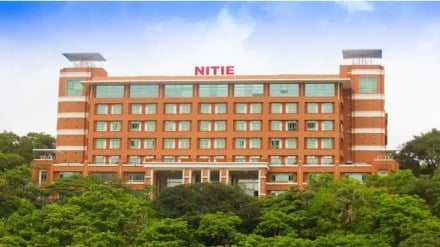Set up in 1963 by the government of India with assistance from the UNDP and the ILO, the National Institute of Industrial Engineering (NITIE) was turned into IIM Mumbai on August 16. Previously, it used to accept only engineers for its management programmes, but as an IIM it will accept eligible students from all streams.
Prof Manoj Tiwari, the director of IIM Mumbai, told FE that the IIM tag has already started benefiting the institute. “The change from ‘National’ to ‘Indian’ isn’t just about the name,” he said. “It will help us get a better ranking, new set of companies to hire our students, and even brighter students and faculty.”
NITIE was already among the top – the National Institutional Ranking Framework (NIRF) ranked it seventh best in India in 2023 – but there was scope for growth. For instance, in the ‘Perception’ component, it could earn just 19.03 points out of 100 (for comparison, IIM Ahmedabad earned 96.14 points), but scored higher than most IIMs in the ‘Research and Professional Practice’ component.
“Now, with the IIM tag, we expect to score really well in ‘Perception’,” Prof Tiwari said. “We’ve already seen the change. For example, during our recent summer internship programme (SIP), 90 new companies came to our campus for hiring interns. This year’s SIP also gave us an idea about the kind of salaries our students can expect when they graduate – as during SIP they earned packages of Rs 4.6 lakh to Rs 8.8 lakh for just two months.”
Education experts told FE that previously the brightest students from top IITs – who wanted to do an MBA – mostly considered top IIMs. “Someone who has graduated from an institution whose name begins with ‘Indian’ may not want to go to an institution who name begins with ‘National’,” a former IIT professor told FE, possibly referring to NITs (National Institutes of Technology). “The brightest engineering students often choose IITs over NITs, and then IIMs over most other B-schools (if they want to do an MBA). But now that Mumbai (the financial capital) has an IIM, a lot of bright kids will choose it.”
In addition to bright students, IIM Mumbai will also get the best of the faculty. “We have already received 10-15 applications from global B-schools such as Stanford who want to join us. I believe they are coming here only because of brand IIM,” Prof Tiwari said. “We will be able to create the finest professionals in the functional areas of operations management, analytics, finance, marketing, project management, HR, information technology, and sustainability management.”
An area where IIM Mumbai will have to pull up socks is generating higher revenues. “As NITIE, we used to get Rs 75-80 crore from the government every year, but now as IIM the government has committed only Rs 80 crore for two years (this year Rs 35 crore, and the next year Rs 45 crore). After that, like top IIMs, we will have to be self-sustaining,” Prof Tiwari said. “We have started taking steps towards generating more revenues; for example, we have increased the fee for the two-year MBA from Rs 15 lakh to Rs 21 lakh (which is still lower than many top B-schools). We will also get more active in generating revenues from industry projects, management development programmes, and so on.”
Another change is that, as IIM Mumbai, it will be able to give an MBA degree. “NITIE used to give the Post Graduate Diploma in Industrial Management (PGDIM), which was equivalent to the two-year MBA, but some foreign companies used to get curious why MBA isn’t written on the certificate,” he said. “We will also start more courses, as all top B-schools do.”
A task at hand, Prof Tiwari said, is building infrastructure for starting new courses and getting more faculty. “With Rs 550 crore corpus and about Rs 300 crore loan that we just got, we will modernise the campus and build new towers for classrooms, labs, hostels, etc,” he said. “Shashi Kiran Shetty, chairman of Board of Governors, IIM Mumbai, and chairman & founder, Allcargo Group, is a very passionate person and wants us to modernise the campus as soon as possible.”
Allcargo, a Mumbai-based logistics MNC, has started the case study competition LogicOn with IIM Mumbai to build a management talent pool for logistics.
But IIM Mumbai has retained a bit of NITIE flavour. For instance, it has reserved one MBA from engineering/technology background. “Our MBA in Operations and Supply Chain Management is reserved for engineers, mathematicians, statisticians, computer scientists, etc,” he said. “This programme is for about 180 students, but for the remaining 330-odd seats, IIM Mumbai is open for all. Now we will have a more diversified campus, and that will benefit students. Also keep in mind that education has become multidisciplinary, and so students from different backgrounds will learn from each other.”
